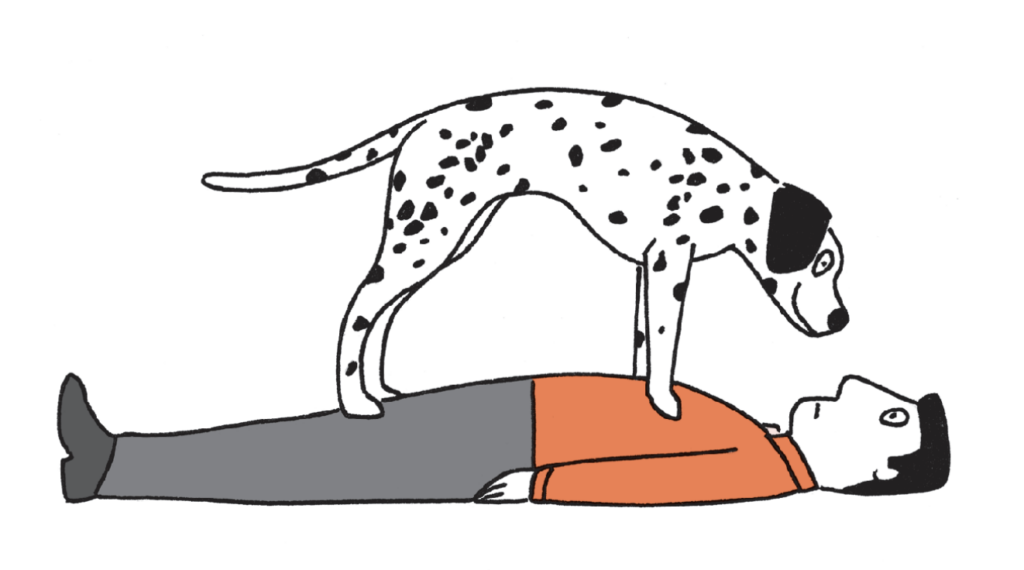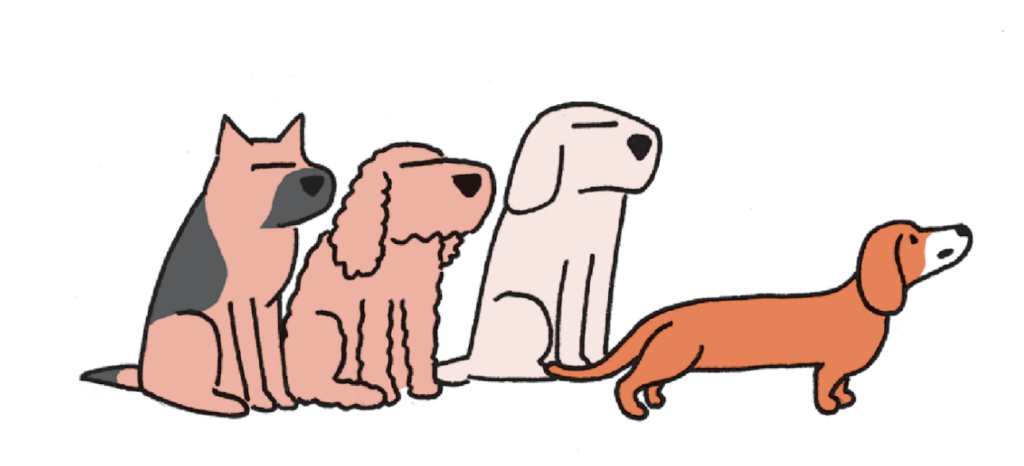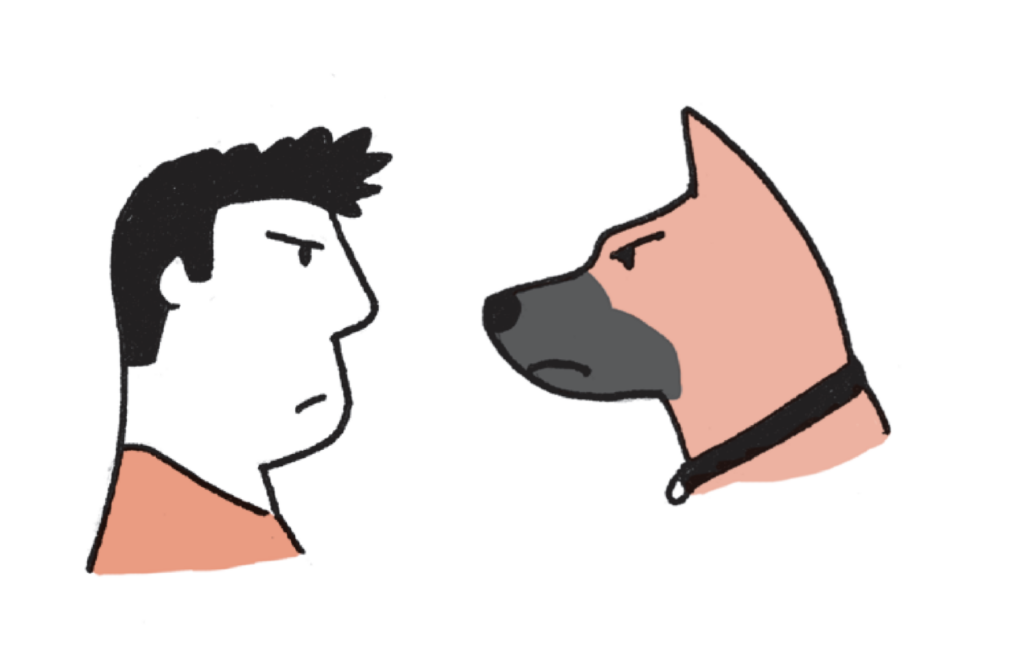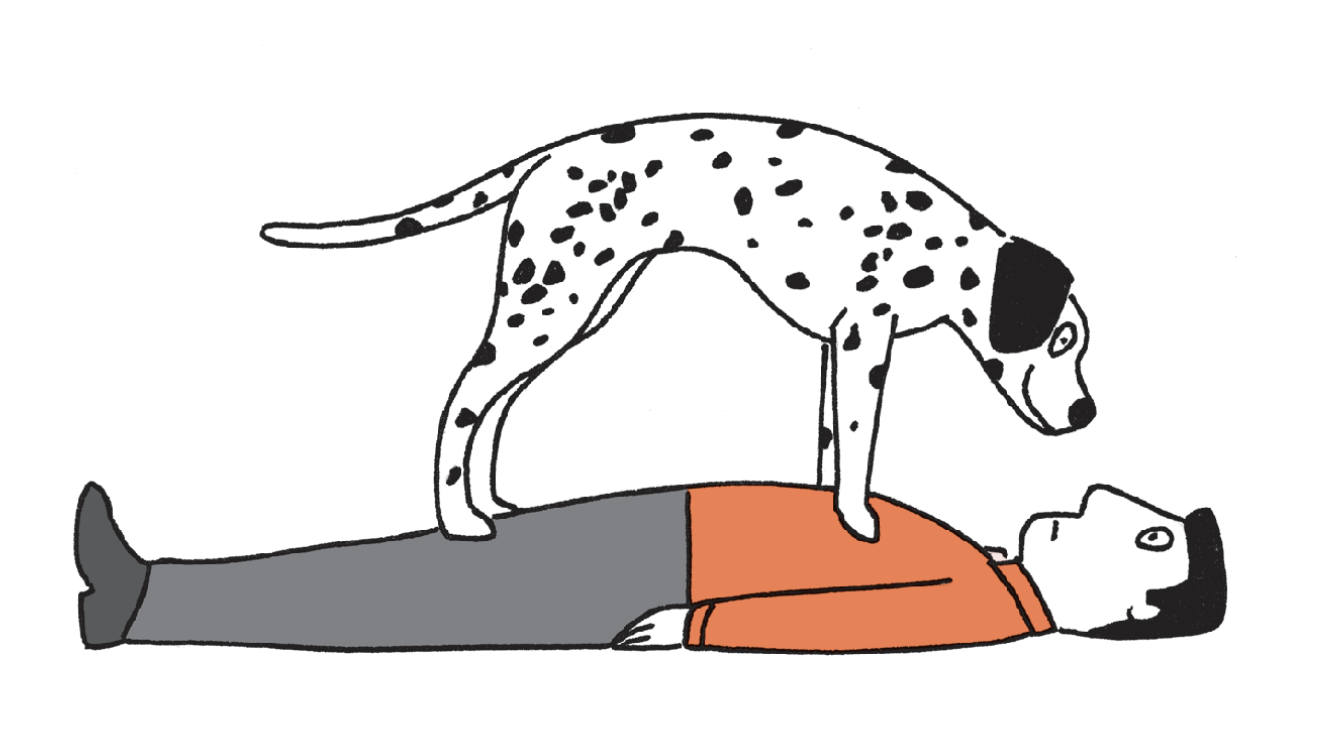Taken from ‘What Dogs Want’ by Mat Ward and Rupert Fawcett (Bloomsbury, 2021)
Contrary to popular belief, our dogs are not trying to climb a status ladder towards household domination and ‘pack leadership’. Rather, they are more likely to look to us for affection, assistance and fun.

Dogs are social creatures like us – they build an understanding of how interactions tend to go within relationships, and then act accordingly. Often a pattern develops between two individual dogs, where one tends to defer to the other when important resources are at stake. If this happens, the dog who normally gets their way is termed ‘dominant’ within the relationship. But, just because dogs can develop expectations in relationships, it does not mean that they are forever looking for weakness in us, and striving to become the ‘Alpha’ member of the family. Don’t worry, you can sleep peacefully at night in full knowledge that your dog isn’t planning a coup d’etat just because you let them sleep on the bed!
Wolf studies: The idea dogs are constantly trying to clamber up a hierarchy ladder to become ‘pack leader’ came from studies in the 1970s where wild wolves, who were unrelated to one another, competed for food in captivity. This high-stress situation didn’t represent normal wolf – let alone dog – social behaviour.

Dominance blinkers: The dominance myth means we may misinterpret our dog’s behaviour as rank-attainment. Aggression? Dominance! Pulling ahead on lead? Dominance! Mouthing the kids? Dominance! This one-size-fits-all assessment can blind us to what is actually behind unwanted behaviour. Your dog might be aggressive because they are scared; they might be pulling to get to their friends at the park; and the mouthing of the kids might be just good-natured play.
Can my dog snooze on the sofa? Many mini-myths have developed along with the dominance myth. Resting on the sofa, eating before you, or walking out of the door first, say, will not mean your dog starts to think they are ‘dominant’ and so start to misbehave. These events are a sign of your dog’s life preferences unrelated to any concept of social status.

No need to fight: When people interpret their dog’s unwanted behaviour as a ‘status’ problem, they often try to assert their own ‘dominance’ through intimidation tactics like rolling the dog over and pinning them down. This can worsen behaviour, confuse or traumatise the dog, and muck up your relationship with them.
Be a parent not a pack leader: The best way to view your relationship with your dog is as a parent. Sure, boundaries are important, but loving, consistent and fun guidance should be your main focus. Teach your dog how to succeed rather than worrying about being the boss.
Purchase ‘What Dogs Want’ from Bloomsbury here!

